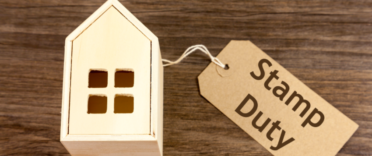
It's not all bad news for homebuyers, however, as the stamp-duty threshold will still be higher than before the pandemic until October, when rates return to normal.
In this article, we walk you through how much SDLT you can expect to pay if you miss next week's deadline, and how rates are going to change throughout the rest of the year.
What happens after the stamp-duty holiday ends?
The current stamp-duty holiday ends at the close of business on Wednesday 30 June 2021 for the first £500,000 of UK properties. This means that properties purchased up until this point on 30 June will not be subject to any SDLT unless they surpass the £500,000 threshold. The rate at which stamp duty is applied beyond this threshold is explained in the sections below.
First-time buyers will return to standard SDLT exemption for the first £300,000 of properties purchased from 1 July 2021.
From 1 July 2021 until 30 September 2021, the stamp-duty holiday will still apply, but only for the initial £250,000. This means that properties purchased between 1 July 2021 and 30 September 2021 will not be subject to any SDLT unless they surpass this £250,000 threshold. The rate at which stamp duty is applied beyond this threshold is explained in the sections below.
The nil stamp duty threshold will return to its pre-pandemic threshold of £125,000 from 1 October 2021.
The amount of stamp duty homebuyers have to pay changes depending on whether they are a first-time buyer or if they own more than one property.
Note that the rate of stamp duty which applies to purchases is based on the date that the property purchase is completed and not the date that contracts are exchanged.
How much stamp duty will I have to pay from 1 July 2021?
For first-time buyers:
| Property purchase price | SDLT rate |
| Up to £300,000 | 0% |
| Above £300,000 | 5% |
On main residences:
| Property purchase price | SDLT rate from 1 July 2021 to 30 September 2021 |
| Up to £250,000 | 0% |
| £250,001 - £925,000 | 5% |
| £925,001 - £1.5 million | 10% |
| Above £1.5 million | 12% |
On additional properties:
| Property purchase price | SDLT rate from 1 July 2021 to 30 September 2021 |
| Up to £250,000 | 3% |
| £250,001 - £925,000 | 8% |
| £925,001 - £1.5 million | 13% |
| Above £1.5 million | 15% |
For example, a buyer purchasing a main residence property worth £450,000 on 1 August 2021 would have to pay the following stamp duty:
| Purchase price bands (£) | Percentage rate (%) | SDLT due (£) |
| Up to 250,000 | 0 | 0 |
| 250,001 - 925,000 | 5 | 10,000 |
| 925,001 - 1.5 million | 10 | 0 |
| Above 1.5 million | 12 | 0 |
| Total SDLT due: | 10,000 |
How much stamp duty will I have to pay from 1st October 2021?
For first-time buyers:
| Property purchase price | SDLT rate |
| Up to £300,000 | 0% |
| Above £300,000 | 5% |
On main residences:
| Property purchase price | SDLT rate from 1 October 2021 onwards |
| Up to £125,000 | 0% |
| £125,001 – £250,000 | 2% |
| £250,001 – £925,000 | 5% |
| £925,001 – £1,500,000 | 10% |
| £1,500,001 + | 12% |
On additional properties:
| Property purchase price | SDLR rate from 1 October 2021 onwards |
| Up to £125,000 | 3% |
| £125,001 – £250,000 | 5% |
| £250,001 – £925,000 | 8% |
| £925,001 – £1,500,000 | 13% |
| £1,500,001 + | 15% |
For example, a buyer purchasing a main residence property worth £450,000 on 1 November 2021 would have to pay the following stamp duty:
| Purchase price bands (£) | Percentage rate (%) | SDLT due (£) |
| Up to 125,000 | 0 | 0 |
| 125,001 - 250,000 | 2 | 2,500 |
| 250,001 - 925,000 | 5 | 10,000 |
| 925,001 - 1.5 million | 10 | 0 |
| Above 1.5 million | 12 | 0 |
| Total SDLT due: | 12,500 |
Further information on stamp duty
For more information on how stamp duty is calculated and who is exempt, visit our article “Everything you need to know about Stamp Duty”.
If you're in the process of purchasing a property, check out our tips on how to bag a property below its asking price. Or, if you're thinking about buying your first home, visit our article "First-time buyers: should you buy now?".





